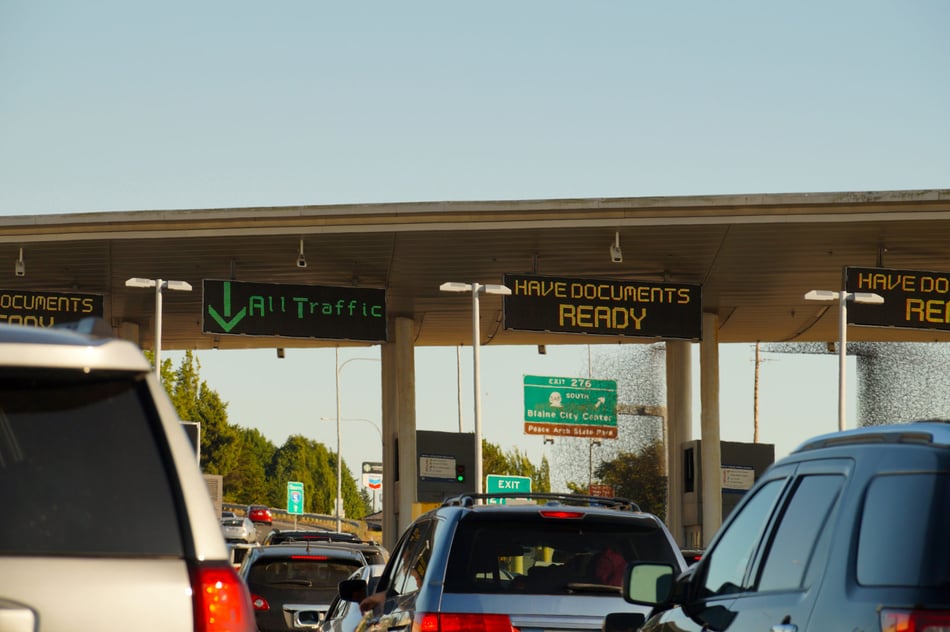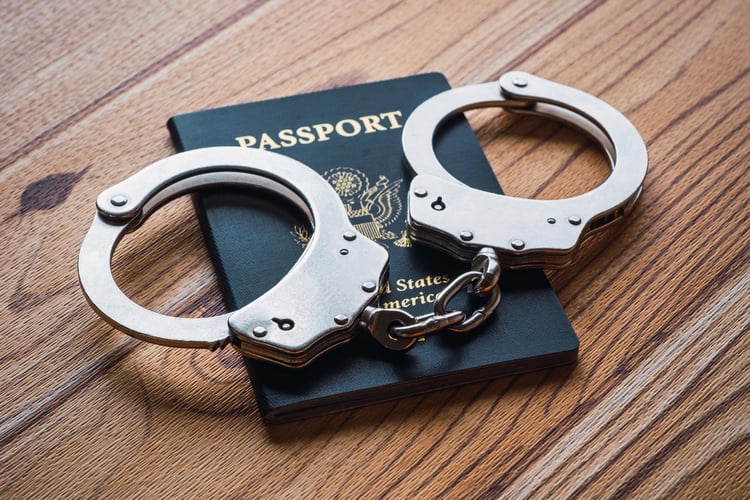
Everyone traveling within the United States has individual rights, even when they are stopped at an immigration checkpoint. U.S. Customs and Border Protection (CBP) has a lot of authority to stop people within 100 miles of the southern U.S. border and the northern border near Canada, but that authority has limits.
When you and your family yourselves at a U.S. immigration checkpoint, know this: You do have individual rights. CBP agents will present themselves to you as if they have unlimited authority. While there’s no question that immigration checkpoints are intimidating, it’s essential to know your rights and how to protect yourself if you have an encounter with a Border Patrol agent at a checkpoint.
What Every Immigrant Should Know About Immigration Checkpoints
Border checkpoints are sanctioned by the U.S. Supreme Court. Each state that shares a border with Canada or Mexico has numerous checkpoints located within 100 miles of that border. For example, California currently has eight.
Educate yourself before you travel, especially as it relates to where those checkpoints are located. You’ll be far more emotionally prepared when you anticipate interaction with law enforcement.
Plans to Make Before You Travel
Border Patrol agents within those zones have the right to pull over and detain vehicles even if there is no evidence or suspicion that there is an immigrant in that vehicle. Prior to planning any travel, it’s best to consult your attorney, so you know what’s best to do if you are detained and questioned at an immigration checkpoint.
Speak with your immigration attorney: tell them you are taking a trip, and where you’re planning on visiting. That way, your legal counsel can clarify anything related to your situation, as well as how you should respond to any questions from local law enforcement or Border Patrol.
Consider leaving copies of your immigration documents with someone you trust when you travel. You could also leave copies of your documents at your home, but ensure someone you trust has access to your home and advise them where those documents are stored before you go.
Memorize your immigration number – also known as your “A-Number” – and provide that to your family should they need to locate you.
Always Present Your Documents at an Immigration Checkpoint
If you are a permanent U.S. resident, make sure to have your green card with you at all times. It’s very advisable that, when it’s requested by a Border Patrol agent, to present your documentation.
You Can Record Border Patrol Agents at an Immigration Checkpoint
In addition to prepping with your attorney, make sure you have a charged cell phone or a video camera with you. You can record Border Patrol agents when they stop you. Additionally, you may ask them for their identifying information, including their name and badge number.
What to Know About Being Questioned at an Immigration Checkpoint
These rules and rights apply to immigration checkpoints. Note that the rules differ when you’re entering the U.S. at international borders and airports.
If you are stopped at an immigration checkpoint, at a minimum, you have the following rights:
- You have the right to remain silent. Should you wish to exercise your right to remain silent, you must state that clearly to the agent. In some states, you may be asked to provide your name to identify yourself
- You do not have to consent to a search of your vehicle, yourself, or your belongings (suitcases, purses, electronic devices, etc.). The law enforcement agent is permitted to pat down your clothing to confirm you’re not carrying a weapon
You do not have to answer any of the following questions:
- Where were you born?
- Are you a U.S. citizen?
- How did you enter the country?
What To Do If You Are Detained or Arrested at an Immigration Checkpoint
- Tell the officers that you wish to remain silent and ask for a lawyer right away.
- Do not sign any documents.
- Do not make any excuses, apologies, or offer any explanations. Say nothing.
- You may request a phone call, and the officers may not listen to conversations you have with an attorney
- You can request a lawyer if you do not have one. The government is not required to provide you with an attorney unless you’ve been arrested, but you may ask for a list of free or very low-cost options if police have detained you, but not arrested you.
- If you are arrested: The government is required to provide you with an attorney.
- If you are detained by I.C.E., you may contact your country’s consulate or request an officer inform your consulate of your detention. Do not discuss your immigration status with anyone outside of your attorney.
- Tell the officers if you need an interpreter.
Final Tips About Immigration Checkpoints
If you are stopped or detained, remember to try and remain calm. Officers will try to intimate you and may even misrepresent your situation. The best way to advocate for yourself is to cooperate as much as possible. Try not to argue or get defensive.
If you’re pulled over and have cooperated with the officer fully, you may ask if you are free to leave.
Make notes and detailed records of any stops or interactions with law enforcement, particularly if you are concerned they may have violated any of these rights.
If you want more resources, check out this free information from the ACLU.
Need Help Now? We’re Here to Help
Novo Legal is one of the leading immigration firms in Colorado, advocating for our clients locally and nationally. We fight for immigrants’ rights, and we constantly stay abreast of changes to immigration laws. We are committed to protecting your right to be in America, and we often accept cases that other firms reject.
If you’ve been detained or have questions about what to do an immigration checkpoint, give us a call or schedule a time to speak with an immigration attorney.
The information on this website is for general information purposes only. Nothing on this site should be taken as legal advice for any individual case or situation. This information is not intended to create an attorney-client relationship.



